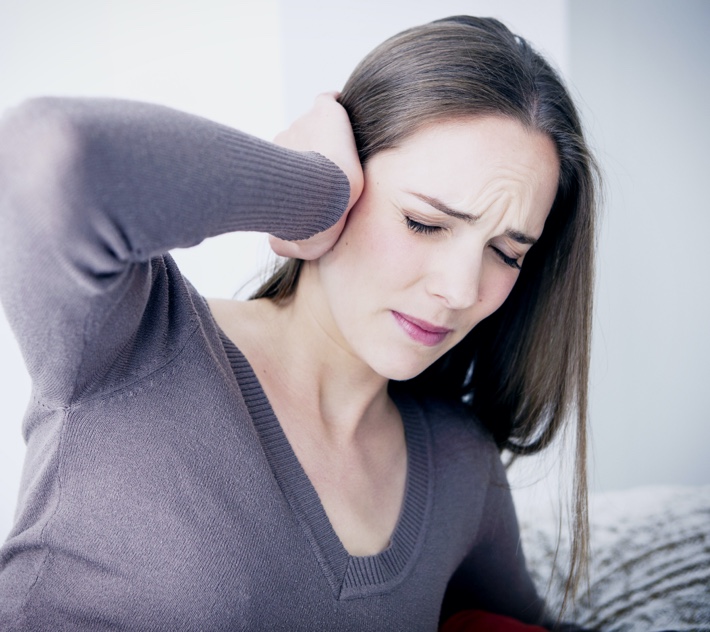
What is Tinnitus?
Tinnitus can be defined as any sound heard within your ears that doesn’t come from an external source.
One of the most commonly experienced hearing problems, tinnitus is not an actual cause of hearing loss, but a symptom that often accompanies other hearing conditions.
Research shows that approximately 18% of Australians experience tinnitus at some point in their lives, highlighting how common this condition is.
If you suspect you’re experiencing tinnitus, take our online hearing test or make a booking enquiry.
What does tinnitus sound like?
For most, tinnitus is only mildly noticeable and the brain eventually tunes it out. Others however experience severe and disruptive noise often described as ‘a ringing in the ears’, but it can result in other sounds such as:
- Buzzing
- Clicking
- Humming
- Roaring
- A pulsing or whooshing in time with the heartbeat (pulsatile tinnitus)
These sounds might be continuous, or they might come and go. It’s not uncommon for the condition to become frustratingly noticeable during quiet moments, such as when trying to sleep, concentrate, or relax.
Is tinnitus always associated with hearing loss?
Tinnitus commonly accompanies hearing loss, as the brain creates sounds to make up for the absence of external stimuli. The sound itself can also interfere with your hearing (although it cannot damage the physical structures of the ear).
Although tinnitus often accompanies hearing loss, it’s a common misconception that the two are always linked. Tinnitus itself doesn’t cause deafness, nor is it caused by it.
Long term, however, tinnitus can lead to increased stress and anxiety brought on by difficulty sleeping and concentrating. This in turn often causes the brain to perceive the sound as important and amplify it, exacerbating the problem even further.
If tinnitus, in both or one ear, is having a significant impact on your life, it is strongly recommended that you have a full diagnostic hearing assessment.


What are the causes of Tinnitus?
Common causes of tinnitus include:
- Prolonged exposure to loud noise (e.g. listening to music on earphones, or working in noisy environments), which damages the hair cells of the inner ear.
- Hyperacusis
- Hearing injuries
- Ear infections
- High blood pressure
- TMJ problems
- Meniere’s Disease
- Otosclerosis
- Excessive ear wax
- Some antibiotic anti-inflammatory and antidepressant drugs
- Neck and back injuries
Numerous factors have also been identified as aggravating existing tinnitus, including substances (alcohol, caffeine, nicotine and marijuana), stress, and fatigue.
What treatments are available for tinnitus?
If you think you have tinnitus, make an appointment with an audiologist and undergo a comprehensive hearing test. They’ll be able to assist you in finding treatments or lifestyle changes that help, for example:
- Neuromonics behavioral therapy: aimed at treating the root cause of the stress and anxiety which can amplify tinnitus.
- Dietary changes: cutting down on caffeine, nicotine and alcohol which cause a narrowing of blood vessels and can limit the oxygen supply to your ears.
- Hearing aids can manage the hearing loss often associated with tinnitus
- Therapeutic noise generators train the brain to ignore unwanted sounds.
- Retraining therapy can provide a range of environmental sounds to mask Tinnitus
- Daily habits for reducing stress, fatigue, and anxiety, such as playing sport, yoga, or meditating.
- Environmental sounds: can help to reduce the audibility of your Tinnitus. Playing soft background sounds with a white noise machine can help to drown out the ringing of Tinnitus, these sounds can include static, waves crashing or soft music
- Sound therapy: Sound therapy can assist with the management of the condition and can provide patients with some relief from the constant sound of ringing and improve their quality of life

What Makes Tinnitus Worse?
Tinnitus symptoms can be aggravated in a wide range of ways, many of which are related to the causes themselves. For example, loud noises and medications can both cause tinnitus symptoms and they can also play a role in making it worse. Here are a few other things to be aware of:
- Nicotine and marijuana – a narrowing of blood vessels can limit the oxygen supply to your ears
- Stress and fatigue – consider changing your lifestyle or introducing relaxation techniques, sports or yoga if stress and fatigue worsen your symptoms
- Caffeine – coffee, tea and caffeinated soft drink are all among the things that can temporarily aggravate tinnitus
Is there a cure for tinnitus?
The lifestyle changes listed above can make tinnitus much less disruptive, although they’re not guaranteed to cure it completely.
This makes it all the more important to manage your tinnitus and prevent it from worsening. Use hearing protection when in the vicinity of loud sounds, but remove it afterwards so you don’t increase your perception of the tinnitus.
In addition, remember that tinnitus and stress are often cyclical, with one exacerbating the other. By engaging in activities that reduce stress and give you a chance to relax, you can significantly improve your ability to live comfortably with the condition.
Concerned about unwanted sound in your ears?
Book a hearing test and chat to one of our friendly audiologists near you about your options. We have clinics Australia wide in Melbourne, Sydney, Brisbane and Canberra. Book an appointment today!
